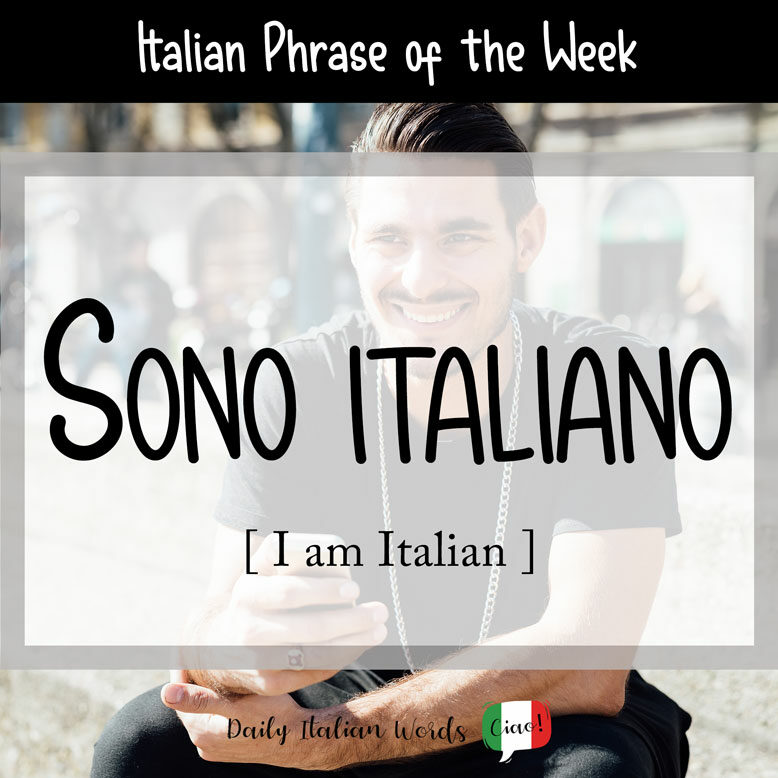If you were born and raised in another country but have Italian roots, you may still consider yourself Italian, even if your parents and grandparents were also raised outside of Italy.
To say “I am Italian” in the Italian language, you can use the phrase Sono italiano (for a man) or Sono italiana (for a woman). Note that, unlike the English equivalent, the word italiano/a is never capitalised.
Sono italiano. / Sono italiana.
I am Italian.

Sono is the first-person singular conjugation of the verb essere (to be), or in other words, the equivalent of the English “am“. You could also say io sono italiano/a, with the addition of the subject pronoun io (I), but doing so would make the phrase more emphatic, as in the example below.
Io sono italiano, mentre la mia ragazza è americana.
I am Italian, whereas my girlfriend is American.
Here is how you would say that other people are Italian:
- (tu) sei italiano / italiana = You are Italian (informal, singular)
- (lui) è italiano = He is Italian
- (lei) è italiana = She is Italian
- (Lei) è italiano / italiana = You are Italian (formal, singular)
- (noi) siamo italiani / italiane = We are Italian
- (voi) siete italiani / italiane = You are Italian (plural)
- (loro) sono italiani / italiane = They are Italian
In English, another way of saying “I am Italian” is “I’m from Italy“. However, in Italian, it is grammatically incorrect to say “sono d’Italia” to describe your origins. The structure “sono di X” can only be used to say that you are from a specific city.
Sono di Torino.
I am from Turin.

You cook really well. – What can I say, I’m Italian!
Heather Broster is a graduate with honours in linguistics from the University of Western Ontario. She is an aspiring polyglot, proficient in English and Italian, as well as Japanese, Welsh, and French to varying degrees of fluency. Originally from Toronto, Heather has resided in various countries, notably Italy for a period of six years. Her primary focus lies in the fields of language acquisition, education, and bilingual instruction.


